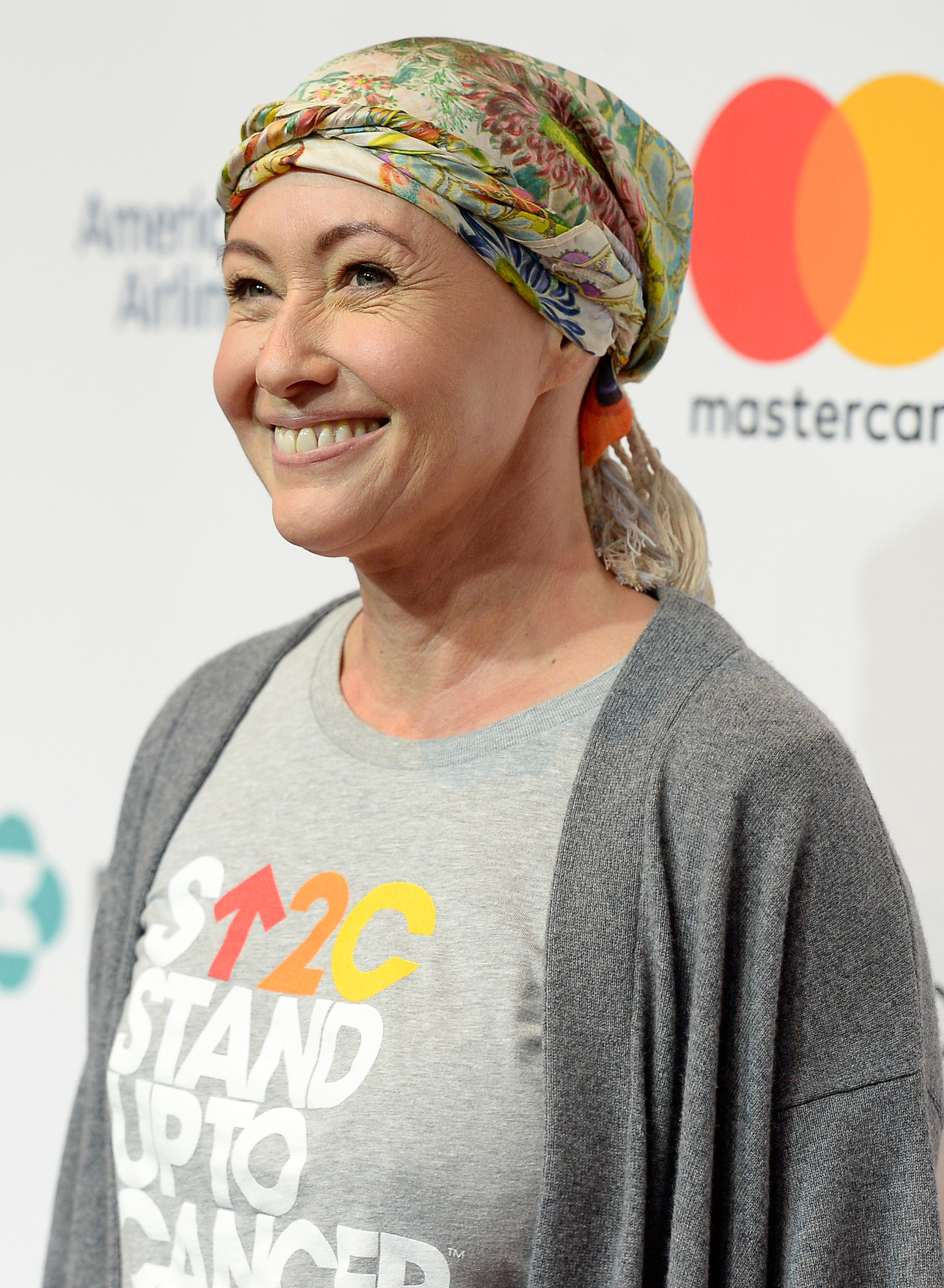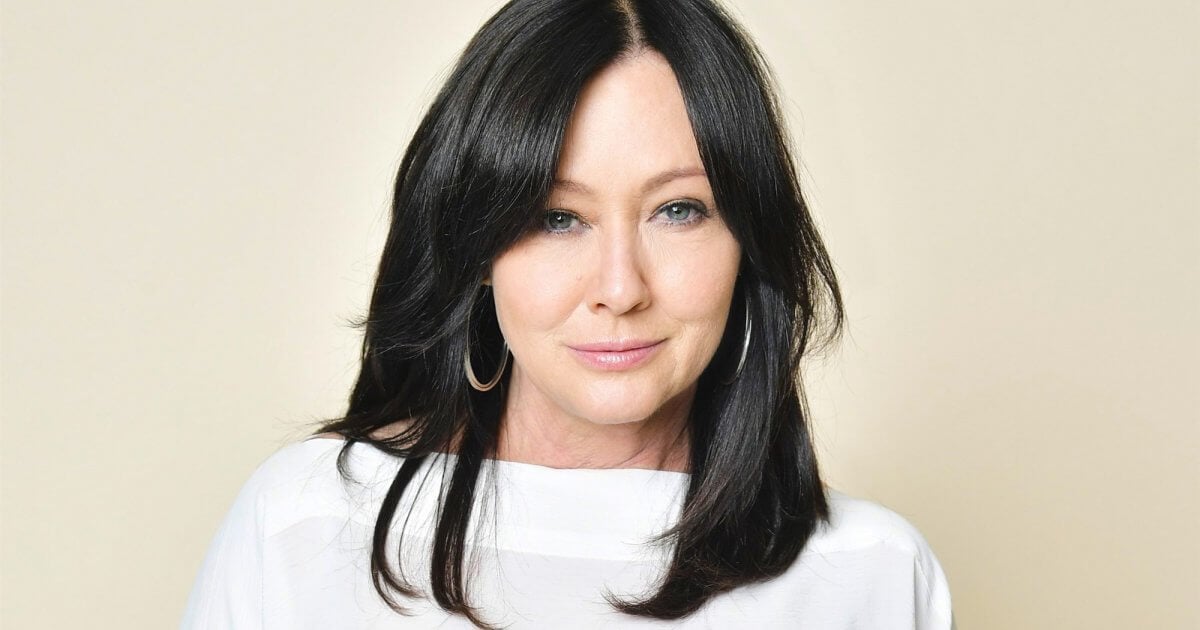Staying Motivated Through Cancer
- Shannen Doherty is currently battling metastatic breast cancer. But, thankfully, she’s continued to maintain her strength and positivity amid her fight with the disease.
- In her most recent Instagram story, we saw the 52-year-old actress share an uplifting video about a “princess” who doesn’t need help through adversity.
- Doherty was first diagnosed with breast cancer in 2015. It went into remission in 2017 but returned as stage 4 (or metastatic) in 2019. Metastatic cancer means the disease has spread to distant areas of the body, like the bones, liver, lungs, or brain. This year, her continued battle with cancer involved surgery and radiation.
- Metastatic breast cancer also called “stage four” breast cancer means that the cancer has spread, or metastasized, beyond the breasts to other parts of the body. There is technically no cure, but advancements in treatments can dramatically improve outcomes and that is something to be hopeful for.
- Resilience is an important trait to have in the face of adversity such as cancer. SurvivorNet spotlighted this important cancer-fighting trait in the film “Resilience,” now streaming on SurvivorNet. It follows the lives of three athletes who are living with a health challenge yet overcame adversity.
Doherty, best known for her role as Brenda Walsh in “Beverly Hills: 90210,” reshared an encouraging reel on her Instagram story this week.
Read MoreThe inspiration quote shared by the beloved actress reads,”I’ll tell you now. She’s not the princess that needs saving.View this post on Instagram
“She’s the warrior that needs someplace to rest in between battles.”
RELATED: Inspiring People Touched By Cancer, Living Life in Spotlight
The video, an Instagram reel (originally shared by @kaabaie), shows a person’s legs crossed with a beautiful landscape view of what appears to be a sunrise.
As a man is heard reading the uplifting words, an original Instagram audio by @thomas_woody21 plays in the background.
The audio features a clip of “Work Song” by Hozier, with the lyrics, “Heaven and hell were words to me; When my time comes around.”
The footage was also accompanied by the following captioned, “We got warrior queen energy up in here, boo,” further emphasizing the power of the inspiration words.

Shannen Doherty’s Health Battle
Shannen Doherty was first diagnosed with breast cancer in 2015. It went into remission in 2017 but returned as stage 4 (or metastatic) in 2019. Metastatic cancer means the disease has spread to distant areas of the body, like the bones, liver, lungs, or brain.
This year, her continued battle with cancer involved surgery and radiation.
Earlier this year, the actress shared a handful of photos and videos of her getting prepared for radiation treatment on her head. During radiation, high-energy beams are aimed at the location doctors believe cancer cells to be. The MRI helps doctors pinpoint the exact location of the tumor within the skull.
She also underwent a craniotomy brain surgery where doctors worked to remove cancer from her brain.
“We take off the bone overlaying the area we need to get to. We open the little envelope around the brain called the dura and then we move through the brain tissue to get to where the tumor is to try to cut out as much as we can safely without hurting the patient’s function or other important things like big blood vessels that can cause things like a stroke,” neurosurgeon at Emory University School of Medicine, Dr. Kimberly Hoang, told SurvivorNet in a previous conversation.
Metastatic breast cancer survivor shares uplifting message: you are not a statistic.
After the procedure, the patient is closely monitored and usually receives radiation to keep the tumor from growing back.
“Because many patients can have more than one brain tumor or metastasis from their cancer, that was not reasonable to think about surgery for, they also get radiation for those spots as well to try to keep those tumors from growing or shrink them down,” Dr. Hoang further explained.
Doherty’s prognosis after having surgery to remove cancer from her brain is an encouraging sign of progress, several neurosurgeons have told SurvivorNet.
“A couple of decades ago, to have a brain metastasis was a very bad prognosis for patients. They didn’t live for more than a couple of months, so it was a very terminal thing. Thanks to a lot of advancements in microsurgery we do and radiation, patients are living longer,” Dr. Hoang said.
The Power of Persistence & Positivity
We love how Doherty shares these powerful words with fans focused on persistence in the face of challenges.
Colorectal surgeon Dr. Zuri Murrell says that having a positive and upbeat attitude like this may help with cancer outcomes. In a previous interview, De. Murrell tells SurvivorNet, “My patients who thrive, even with stage 4 cancer, from the time that they, about a month after they’re diagnosed, I kind of am pretty good at seeing who is going to be OK.”
Stay Positive, It Matters
“Now doesn’t that mean I’m good at saying that the cancer won’t grow,” he explains. “But I’m pretty good at telling what kind of patient are going to still have this attitude and probably going to live the longest, even with bad, bad disease. And those are patients who, they have gratitude in life.”
Understanding Metastatic Breast Cancer
When breast cancer spreads, it most commonly goes to the bones, liver and lungs. It may also spread to the brain or other organs. Currently, there is no cure for metastatic breast cancer, but new treatments have been improving survival rates.
“What we find is that everyone comes to acceptance in their own time with support and some people never really reach acceptance,” Marshall Gold, a psychiatric mental health nurse practitioner at the Johns Hopkins Hospital in Baltimore, tells SurvivorNet.
He reminds us that battling cancer is a very personal experience and there’s no right or wrong way to grieve.
“I think the ways we can support these women are just to honor really how horrible the diagnosis is and the uncertainty that lies ahead and to try to reframe what is most important to you,” Gold says. “What do you continue to live for? What brings you joy? To try to see that little silver lining in a horrible situation.”
In this case, the silver lining is Doherty finds more meaningful purpose in her own life and is fighting for something other than herself and her own battle. Though the subject matter is intense, passion and a will to live can go a long way.
Dr. Dana Chase explains how emotional health is key during a cancer journey
How to be Resilient in the Face of Adversity
Doherty’s ongoing health journey and recent divorce have both had an impact on strengthening her resilience in the face of adversity.
She’s been hit with tough cancer treatments and a divorce this year alone. However, she’s still keeps an optimistic outlook on life.
Resilience is an important trait to have in the face of adversity such as cancer.
WATCH: Resilience: Staying Positive Despite Adversity
SurvivorNet spotlighted this important cancer-fighting trait in the film “Resilience,” now streaming on SurvivorNet. It follows the lives of three athletes who are living with a health challenge yet overcame adversity.
You can build resilience the way you build muscle, through patience and steady exercise of the skill. Here are some lessons taken from Fischer, Runkel, and Soller:
- Be willing to learn. If one way doesn’t work, find a different way. If an obstacle lands in your way, build a path around it, or over it.
- Spend time with people who inspire you.
- Allow yourself to grieve. Don’t push away or dismiss your frustration and sadness. Give yourself grace when your emotions run high.
- Be flexible. Understand there are multiple ways to accomplish a goal. If your original method does not work, find another.
- Lean into your community. Consider using your support group made up of your friends, colleagues, and family. Remember when you’re feeling stressed or overwhelmed by a problem, their support can carry you.
It’s important to remember that battling cancer comes with a wife range of emotions. These can range from “anxiety, depression, financial toxicity, social isolation, and PTSD,” SurvivorNet expert and researcher at Moffitt Cancer Center, Dr. Shelly Tworoger, previously explained.
Psychologist Dr. Marianna Strongin also spoke SurvivorNet in an earlier interview, sharing some simple tips to help you maintain good mental health and reduce stress amid adversity.
When it comes to dealing with anxiety, Dr. Strongin says it’s important to have a healthy relationship with your anxiety and get to know it rather than fear it, avoid it, or push it away.
“By learning more about your anxious thoughts and tendencies, one can begin to answer their anxious thoughts even in moments when there aren’t any answers. For cancer patients, the worry thoughts tend to be, ‘Will I survive?’
“It’s important to let those thoughts come in and really be able to tolerate them before answering them. This is a very powerful coping skill.” Dr. Strongin explained.
Dr. Strongin suggests medications to help with anxiety and depression if other approaches are not as effective. She also urges cancer warriors to explore telemedicine.
Contributing: SurvivorNet Staff
Learn more about SurvivorNet's rigorous medical review process.


